Abstract
Morphological dictates of English usage call for the unvoiced allomorph /-s/ to form the plural of singular nouns with unvoiced endings (e.g., cups). Conversely, the voiced allomorph /-z/ is required to form the plural of nouns with voiced endings (e.g., tree). The study sought to determine the extent to which differential reinforcement could control the acquisition of plural allomorphs in two retarded subjects. In Condition 1, one subject was trained with reinforcement procedures on a list of words calling for the /-s/ allomorph. She was then given unreinforced probe items to determine the extent of generalization to words calling for the /-z/ allomorph. In Condition 2, the procedures were reversed and this subject was trained on a /-z/ list and probed for generalization of /-z/ to words calling for /-s/. A second subject was exposed to the same conditions in the opposite order. The results for the two subjects lent unequivocal support for the hypothesis of generalized training effects. It was concluded that appropriate usage of the linguistic response class “plurals” is susceptible to generalized training effects of differential reinforcement.
Full text
PDF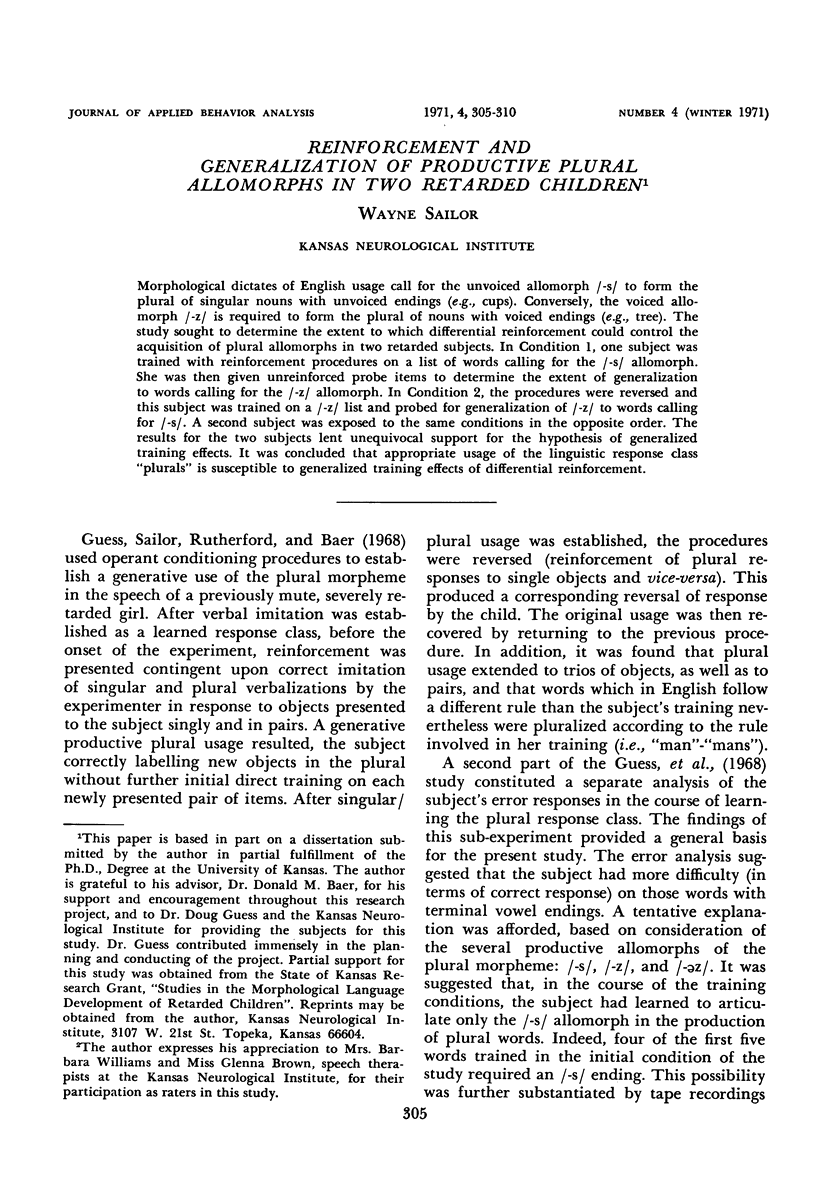
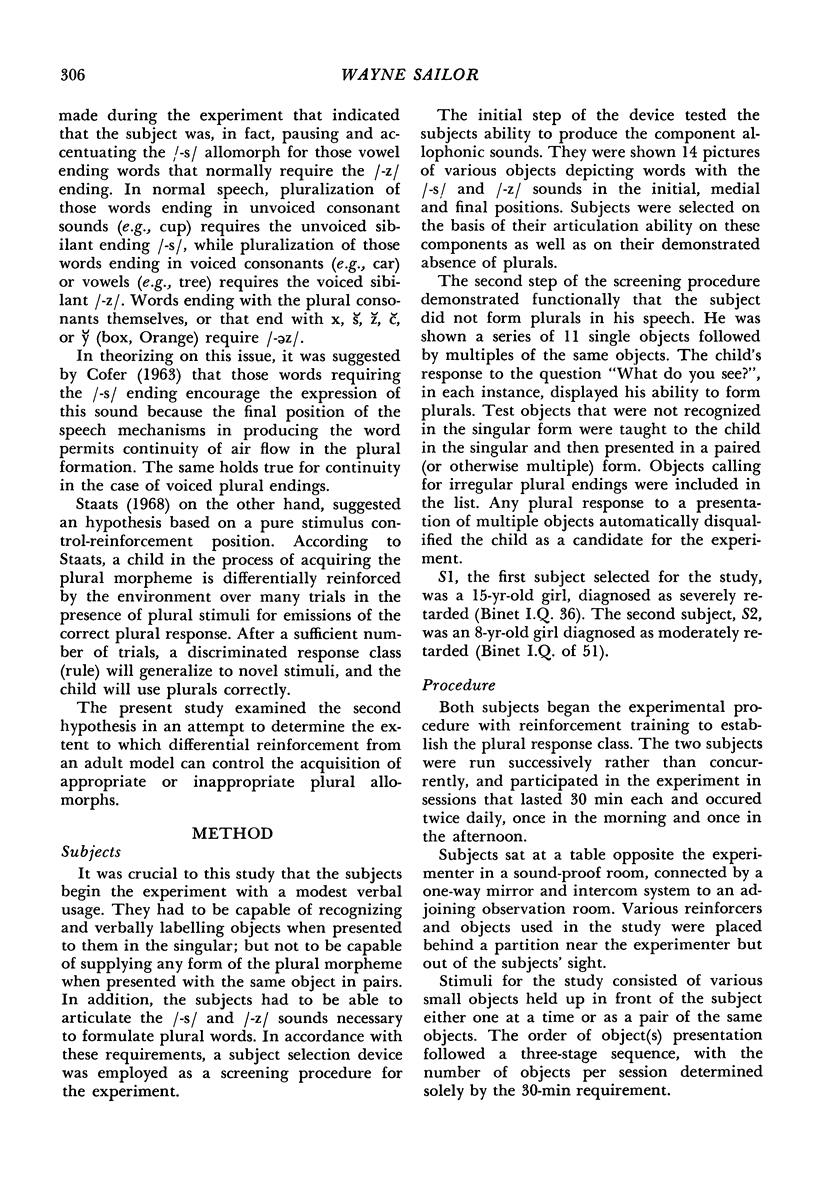
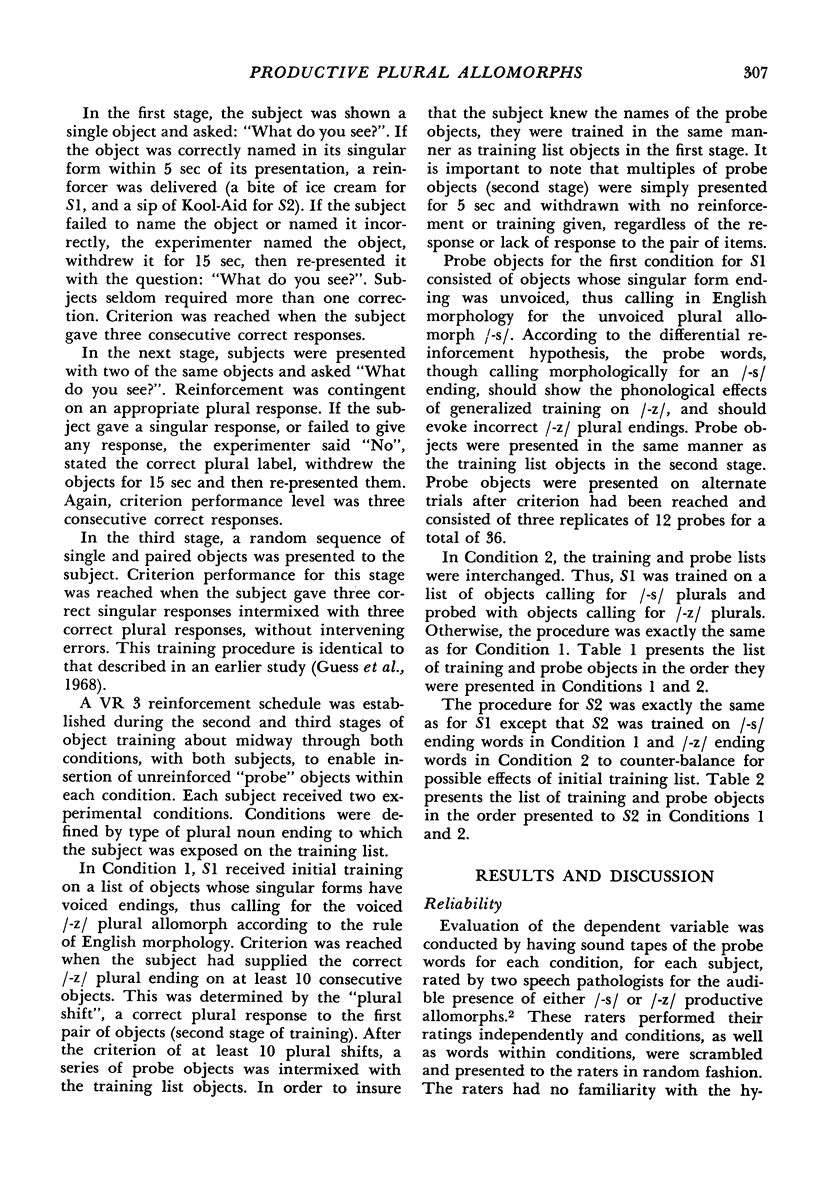
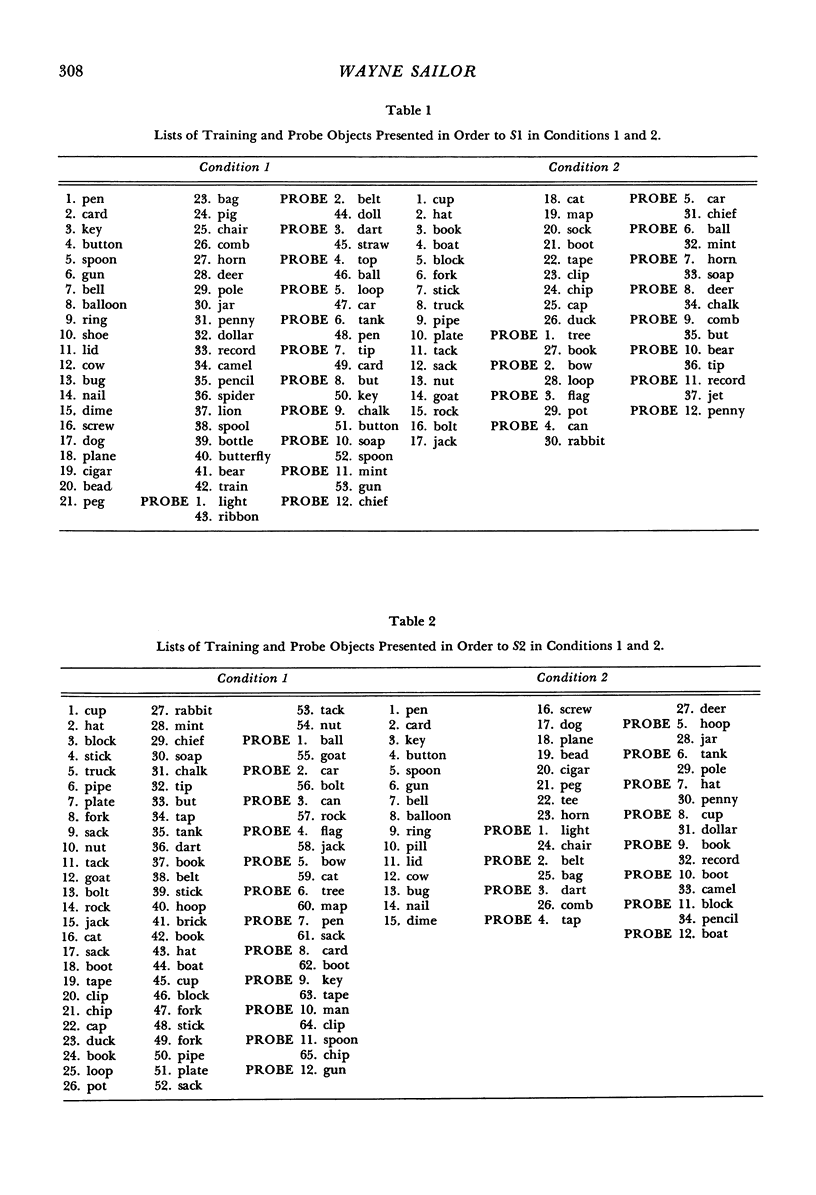
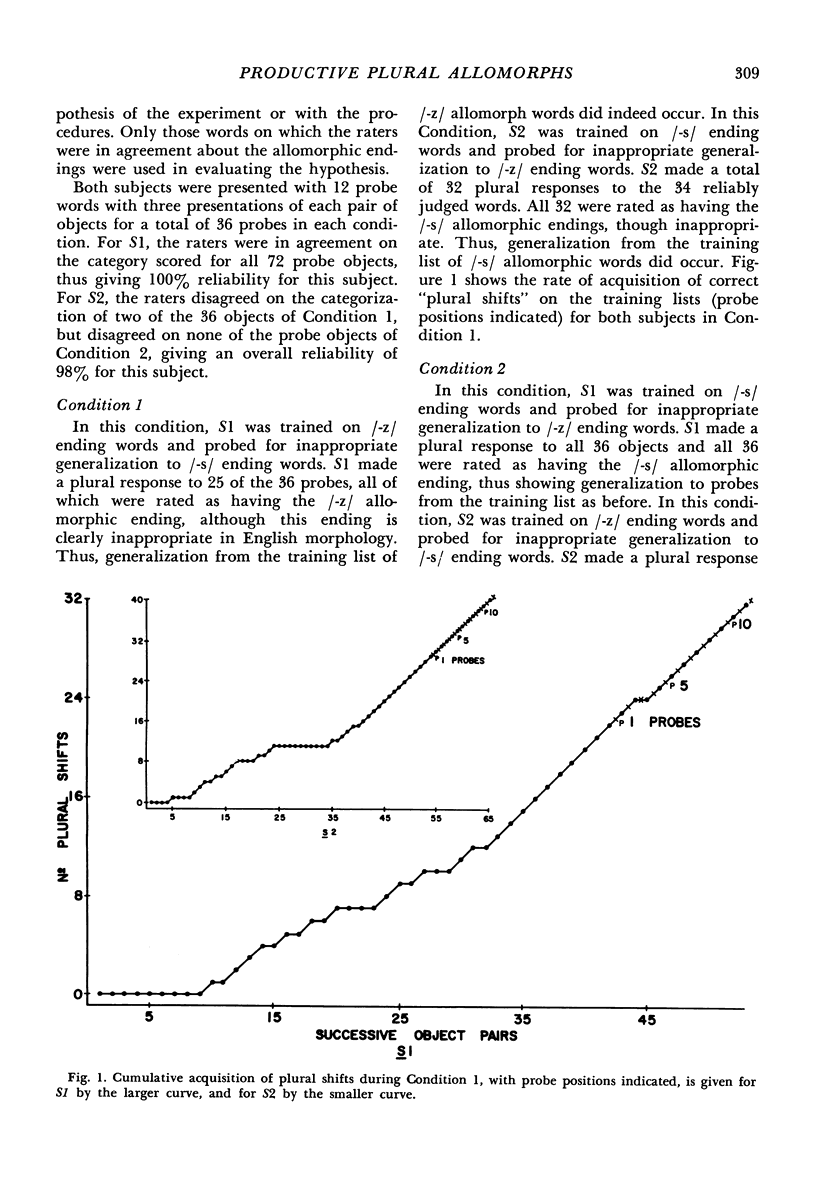
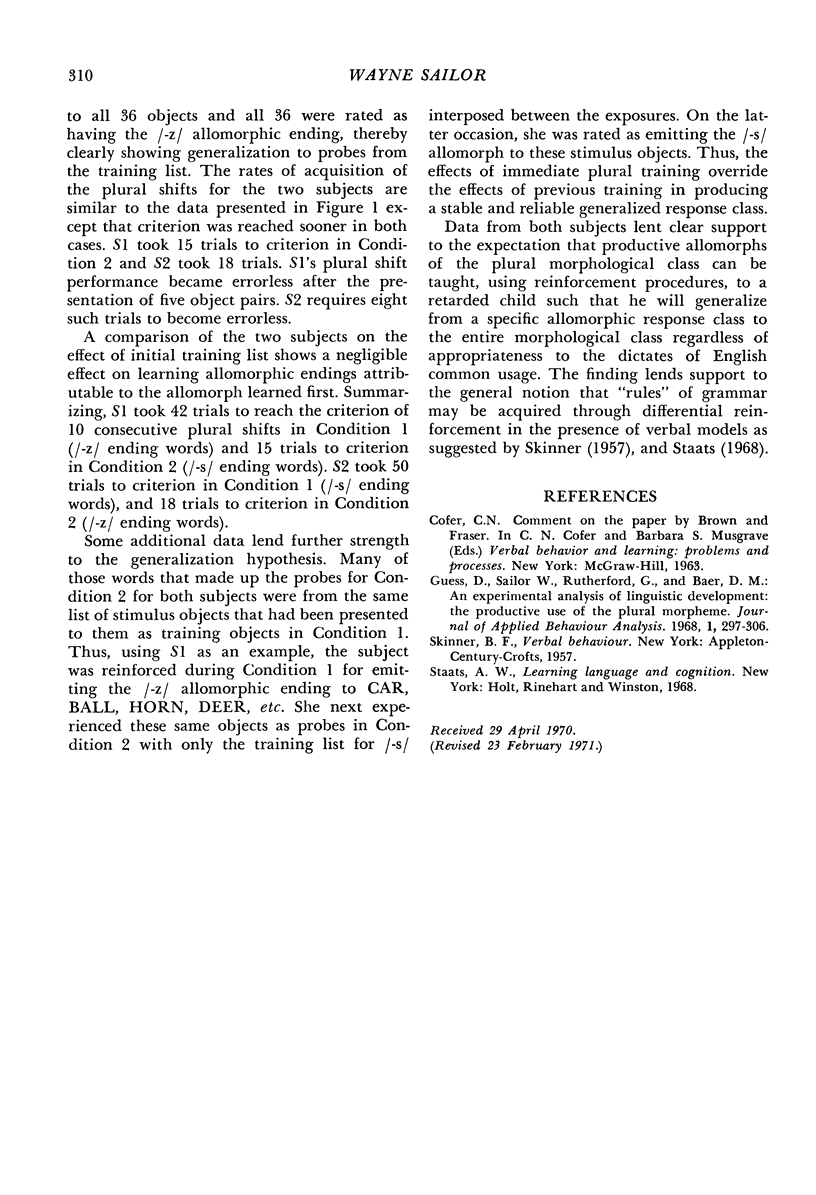
Selected References
These references are in PubMed. This may not be the complete list of references from this article.
- Guess D., Sailor W., Rutherford G., Baer D. M. An experimental analysis of linguistic development: the productive use of the plural morpheme. J Appl Behav Anal. 1968 Winter;1(4):297–306. doi: 10.1901/jaba.1968.1-297. [DOI] [PMC free article] [PubMed] [Google Scholar]


